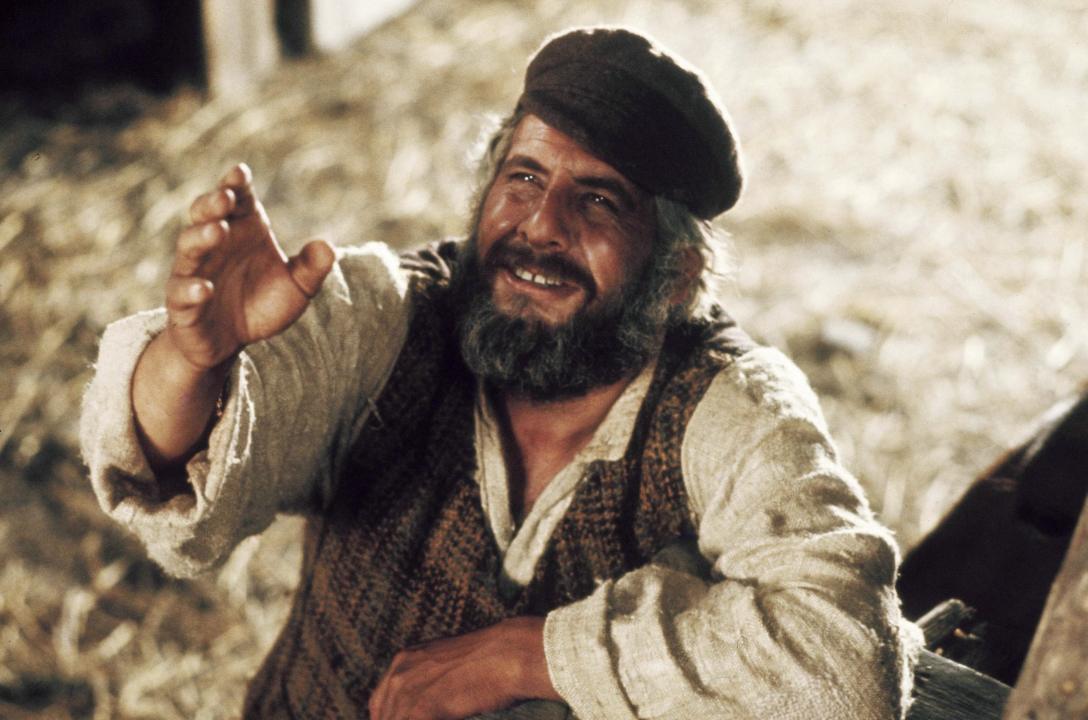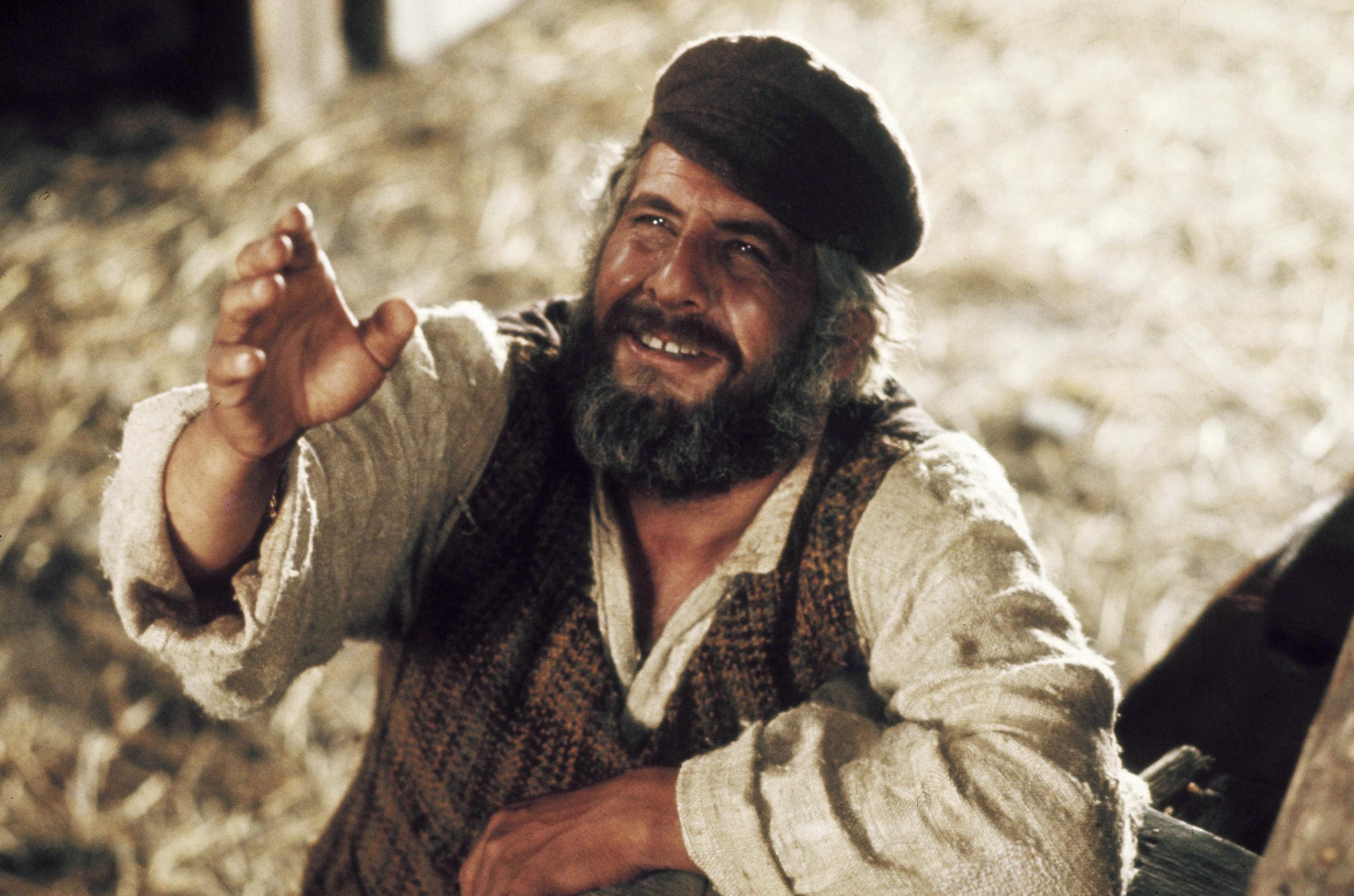In 1969, for my seventh birthday, I was taken – dragged, probably – ‘up west’ to the theatre to see a musical. As I recall, it didn’t fill me with joy to be going, but it turned out to be fantastic. The songs, the acting, the dancing: it was great fun. Then we went for pasta in Soho, which was also a special event in those days.
More importantly, though, I think it was the first time I became truly aware of a vital part of my identity: that I was here because decades earlier my great-grandfather had arrived on these shores, driven out of his native Russia by a pogrom, the ethnic cleansing of Jews across that vast country.
The play was Fiddler on the Roof, and though the version I saw starred Alfie Bass in the lead role, I was reminded of its significance with the news yesterday of the death at 87 of Israeli actor Chaim Topol who – sorry Alfie – made the role his own on stage and screen.
What makes the film so very important is that, by being fun to watch, it opened the eyes and minds of so many to the devastating effect of the pogroms
There are plenty of what could be called Jewish-ish films – from Diner to Manhattan to The Producers to Funny Girl – that tick the requisite boxes of stereotypical humour, self-deprecation and neurotic behaviour. Then there are films about Jews, telling of our history, struggles, successes and defeats, from Exodus and Cast a Giant Shadow to Schindler’s List and a host of other movies about the Holocaust.
But what makes the film of Fiddler on the Roof stand out is that it brought to life a story that, perhaps, few were aware of – and, maybe more incredibly, detailed the horror and barbarity of the pogroms while using humour, catchy songs and wonderful dance sequences.
At its centre is Topol as Tevye, the dairyman dreaming of one day being rich, while also trying to preserve his tradition and culture in an already changing world. He faces a losing battle as, one by one, his daughters marry outside their father’s wishes – the first choosing her own husband rather than allowing a matchmaker to do so, the second falling for a communist (hey, he was played by Starsky so you can’t blame her) and another falling for a Russian soldier.
Topol will be remembered by many for nothing other than this performance, and that’s no bad thing to leave as a legacy. While most people are surely aware of the Holocaust, I suspect there are millions, including many Jews, who only discovered the story of the earlier, devastating effect of the pogroms through this film and Topol’s magnificent portrayal.
Of course it resonates with Jews – but in some ways that is like preaching to the converted. What makes the film so very important is that, by being fun to watch, it opened the eyes and minds of so many others, including my Catholic mother-in-law (like Topol’s youngest, I also married out), to much earlier events. Apart from commenting that everyone in the film’s village looked like me, she saw in it a good illustration of what brought my ancestors to this country in the first place.
Would it have achieved all of this without Topol? Maybe – but it’s hard to imagine who else could have done the job.







Comments